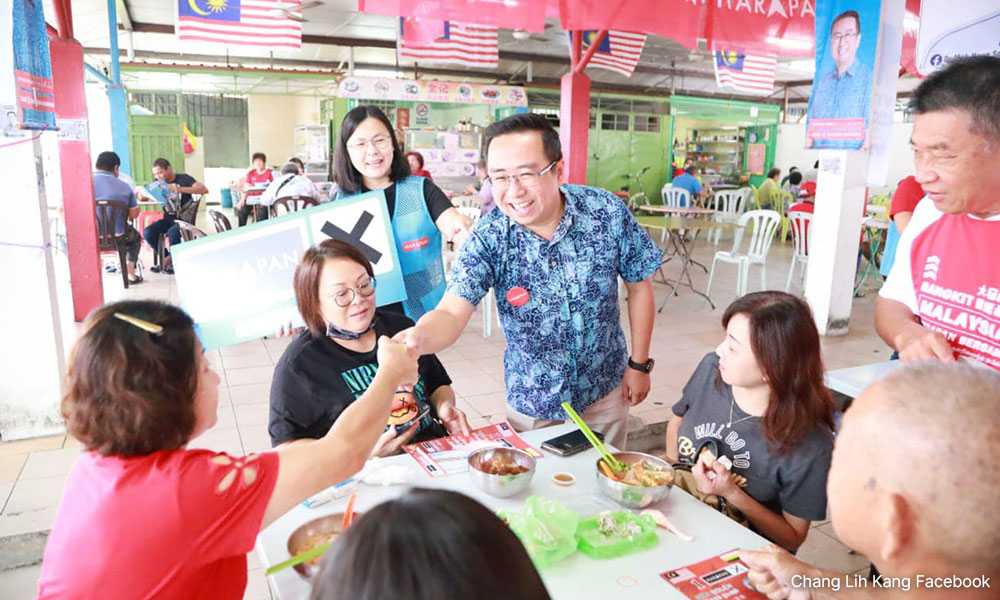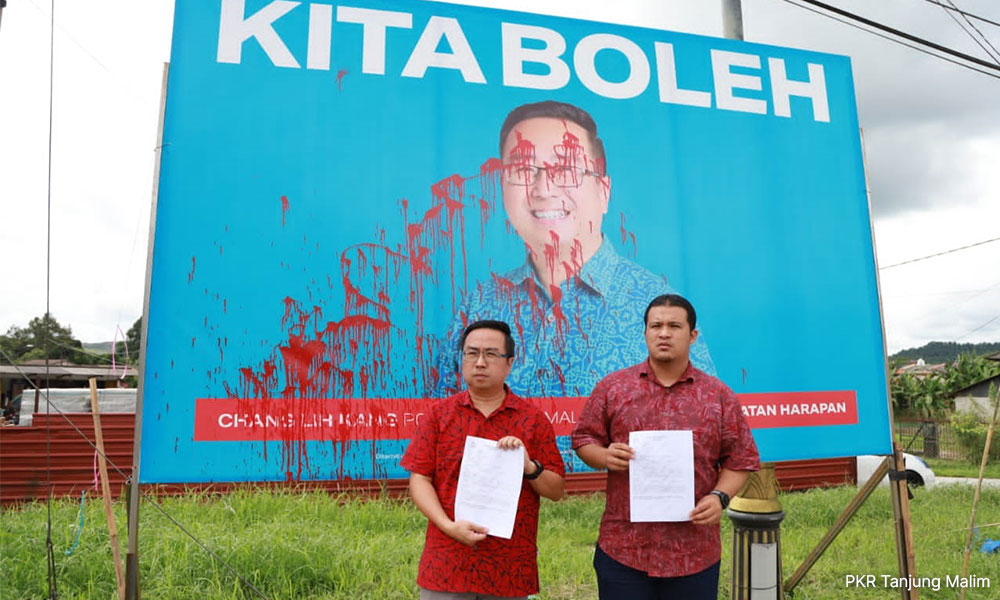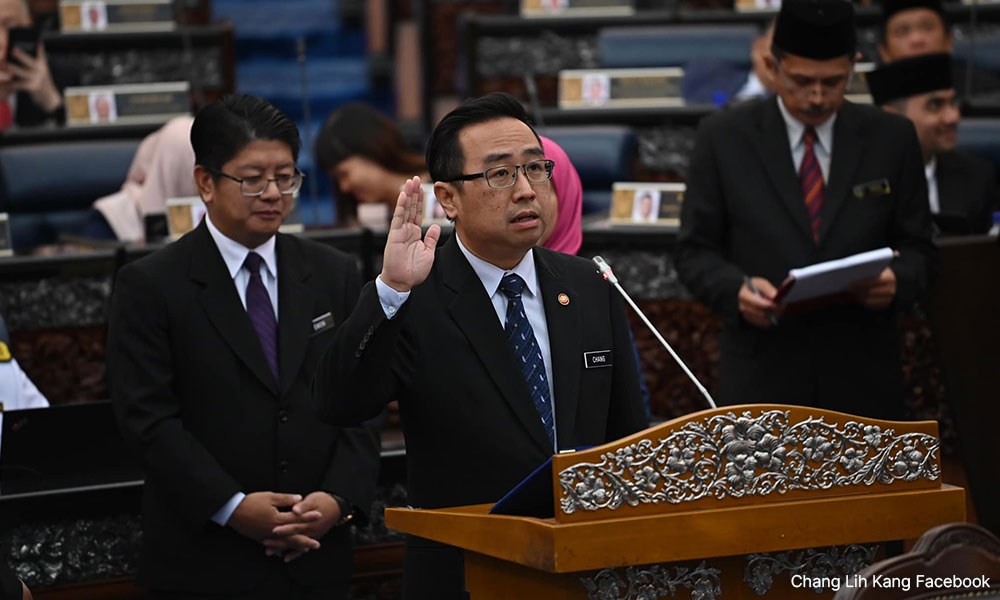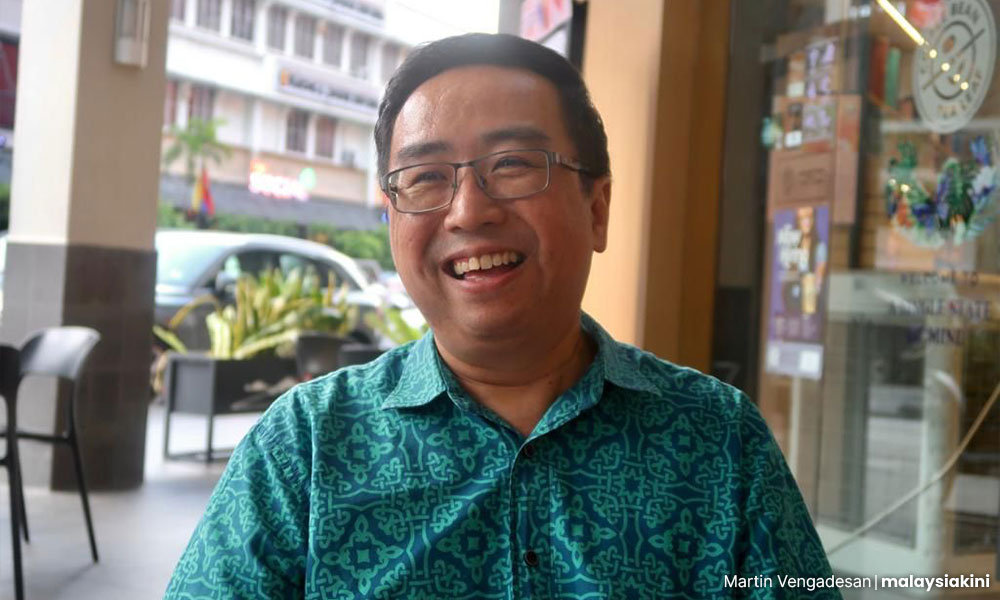INTERVIEW | PKR, the party of Prime Minister Anwar Ibrahim, has long prided itself on being a multi-racial, multi-regional party in a country where most political groups limited themselves to a single race or religion.
However, through the years, the party has not been without internal tumult, which exploded most notoriously in 2020’s Sheraton Move and the defection of a number of its elected representatives, including 11 MPs.
In the aftermath of that move, Chang Lih Kang found himself propelled to the forefront of the party’s leadership. The newly elected vice-president is its seniormost figure of Chinese ethnicity, occupying a role that was long held by the now-sacked Tian Chua.
“I don't think I have become a prominent person just because I’m a minister and a party vice-president. When I first decided to join, the party was at its weakest point in 2004, with only one MP.
“I just graduated and I really liked the idea of multiracial politics. Of course, there are other values like fairness and social justice but that multiracial politics really attracted me.
“I see a lot of good people in DAP also, but to me, I think we need to have a multiracial political party that is led by the Malay community.
“That is why I joined and, along the way, I think this ideology is deeply rooted in my career and my character. So, I don't see myself as the Chinese leader taking over from Tian Chua,” Chang (above) told Malaysiakini in an exclusive interview.
“Of course, because I’m Chinese and I understand the sentiment in the Chinese community, people might look at me when it comes to Chinese issues. I will raise those concerns but in PKR, the culture is that we are all Malaysians and anyone can raise Chinese issues. It happens very naturally.

“So I don’t feel any pressure there like I’m replacing Tian Chua. And I think we are heading in the right direction. I hope we can continue with this political culture,” he said.
Settling down with new partners
That politics brings about strange bedfellows is an oft-repeated mantra, and Chang suddenly finds himself sitting alongside old foes in BN. He gave his assurance that the current government is a stable one.
“I've been in politics since 2004 and politics is very dynamic. I think our society is slowly getting used to this shift and realignment. This situation is a healthy development for the country. So that we go more on policy and less on personality. I think that is very important,” he said.
One of the many hats he wears is that of Perak PKR leader. At the state level, Umno’s Saarani Mohammad helms the administration even though BN is the smallest of the three coalitions in the state assembly. Chang believes that the government will sustain itself despite an unfamiliar model.
“I think we can sustain but it depends very much on the central government, where BN is supporting Pakatan Harapan. Whereas in Perak and Pahang, it’s more of the reverse.
“I think it's very normal for a leader from a smaller coalition to become the chief minister or prime minister because we have seen it so many times. So I think we are getting used to it. Stability is very much what people want and that is how we negotiate to suit the current situation,” he added.

Chang said that after the last election, there was a lot of instability in the midst of the Covid-19 pandemic and economic setbacks, and that’s why the parties concerned have committed to working together.
“It was a very tough decision to make. But we have only two choices. If we want to have a stable government, we have to swallow our pride to work with parties that we might not want to work with in the first place.
“I think we made a good decision that fits what the people want,” he said.
Will PKR infighting finally end?
Chang is not one to avoid the fact that PKR infighting has had disastrous consequences in the past but believes that the party has finally turned the tide.
“I think what happened in my party in the past is quite normal, common for any political party. Only that because our party elections have way more people than other parties and definitely there will be more argument or contention. But we always say democracy is a noisy process.
“So, slowly, people can people get used to it, even though it was a very painful lesson.
“Every party polls, people say we will dissolve but after every party election, we come back from it. So, I think it’s just a perception that our party is very unstable in the past, but I think my party is very stable now. Especially now that we are in the government and our president is prime minister,” he said.
Now science, technology and innovation minister, Chang has enjoyed a meteoric rise since 2008 when he was first elected as Teja assemblyperson but he is still not an instantly recognisable figure to the general public.
“Many people don’t know about me. That’s why I say I’m not prominent. I was only active in my party and then at the state level. I was only made MP in 2018. So, less than five years in federal politics. I think if you are like, say, Anthony Loke, then people are used to seeing him in papers, but not me,” he said.

Making history in his own way
In 2018 when Chang won in Tanjung Malim by defeating Mah Hang Soon, it was the first time since Merdeka that MCA had lost the seat. This seat had only been held by four men - Lee Seck Fun, Mak Hon Kam, Loke Yuen Yow, and Ong Ka Chuan - during that time. Chang is now establishing himself as a leader for the constituency that is located near the Perak-Selangor border.
“My area has always been the stronghold of MCA but there’s very good support for us now. I would call it a litmus test because, whoever wins there, their coalition will be leading the government. There is a mixed racial composition and also a mix of urban and semi-urban areas.
“As an MP, I would like to make use of our strategic location and we have a huge automotive industry in the area too. We have to develop high-tech industries, the automotive industry, and also agricultural resources in the area. So that we can also produce food with high technology because now we have a lot of farmers, but a lot of them they are working on land without a lease,” he said.

As a chemical engineering graduate, Chang might have been expected to go the “safe” corporate route but he said that he had foreseen this when he became active in the human rights struggle.
“I have solved that issue. When I was studying in my first year, I thought of changing my main course out of engineering. But my parents made a deal with me to finish this degree, then I could do whatever I wanted,” said Chang who admits that he struggles to make time for his hobbies these days.
“I like to watch movies. I like to play sports like badminton, I read a lot of social science books, but now I am reading hard science to help understand my work,” he said. - Mkini




No comments:
Post a Comment
Note: Only a member of this blog may post a comment.